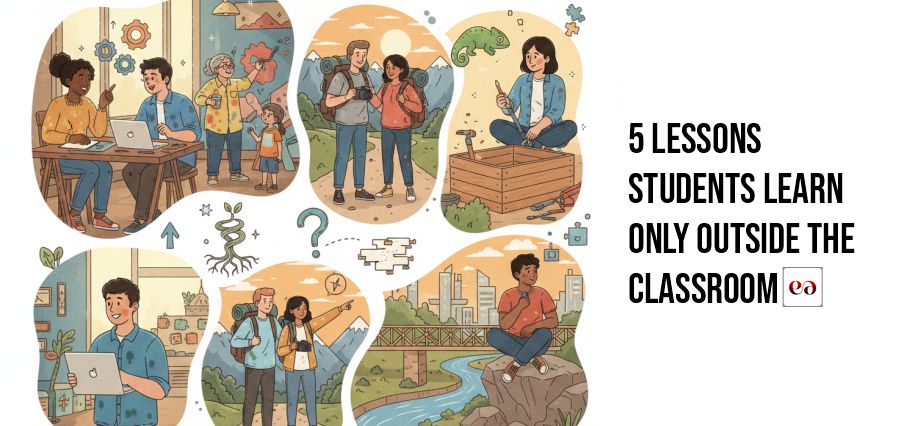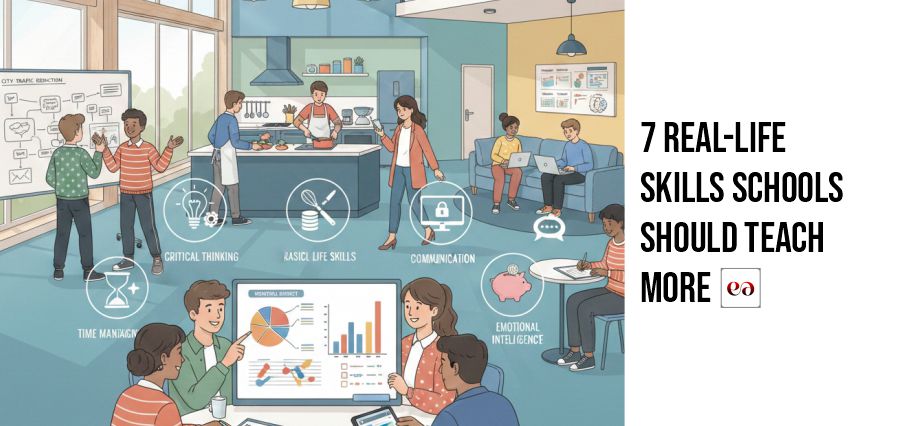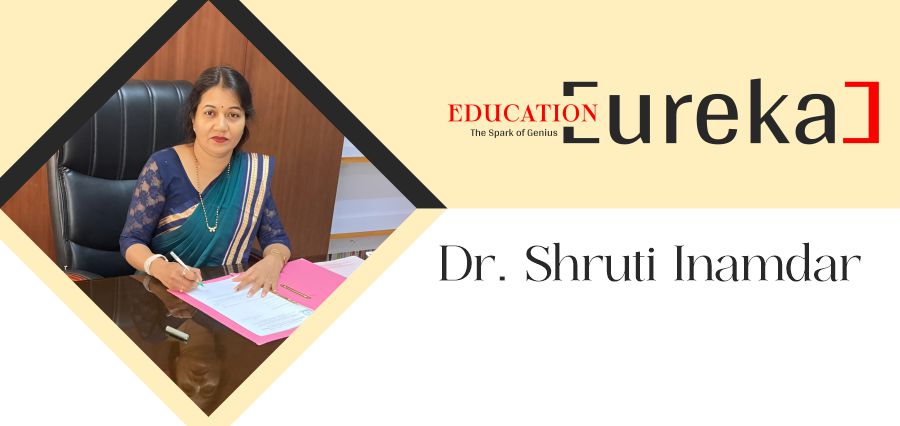
Guiding Individuals and Organizations Through Cognitive, Emotional, and Career-Focused Development Programs!
Many people go through life feeling they are capable of more but unsure how to unlock it. That gap between who we are and who we can become is where Nehha Mishra thrives. She has built a career around helping individuals cross that divide, guiding them toward clarity, confidence, and growth.
Nehha’s journey started in corporate communication and marketing, where she spent years learning how ideas reach hearts and minds. She realized that the same principles could transform not just organizations, but people. Certified in Neuro-Linguistic Psychology, Cognitive Behaviour Therapy, Career Counselling, and Personality Development Analysis, she combines science, strategy, and empathy to create meaningful change.
Over the last 13 years, Nehha has trained more than 30,000 individuals, designing workshops that go beyond skill-building to focus on self-realization. Her sessions help participants understand themselves, communicate effectively, and embrace leadership in their own ways. Each interaction is rooted in the belief that learning must resonate personally to create lasting impact.
As a Founder and Master Facilitator at Epinomi Consulting, Nehha persists this work on a larger scale. The organization designs customized and blended learning programs that aim to transform both individuals and organizations. Her approach ensures that every training session is purposeful, practical, and personal.
What distinguishes Nehha is her ability to combine knowledge with intuition. She listens, challenges, and inspires in equal measure. For her, leadership is not just a position, it is the skill of awakening it in others. Through her guidance, thousands have begun to bridge the gap between potential and achievement, proving that transformation is possible when insight meets action.
Let us learn more about her journey:
Nehha comes from a humble family where education has always been a top priority. Surrounded by authors, orators, and professors, she grew up in an environment that valued the sharing of knowledge across generations. A common thread in her family is a natural ability for communication, yet even with this gift, misunderstandings and communication gaps occur.
Communication is a skill that requires continuous refinement. It demands conscious effort and practice in everyday life. Misinterpretations often arise from assumptions based on past experiences, unclear understanding of language or terminology, and underlying biases. As George Bernard Shaw famously stated, the single greatest challenge in communication is the illusion that it has occurred. Recognizing this truth is essential to developing clarity and connection in interactions.
Approaching communication with intentionality allows one to excel in multiple roles, whether as an executive, team leader, negotiator, partner, or home manager. Strong communicators can delegate tasks effectively, navigate challenging conversations, resolve conflicts, inspire and encourage others, and strengthen relationships. The power of communication extends beyond expression; it cultivates the ability to listen with empathy, understand perspectives, and build trust.
For Nehha, mastering communication is not merely about speaking well; it is about creating meaningful connections and fostering understanding that can transform personal and professional relationships.
Many aspiring professionals often ask if language itself determines the success of communication. The answer lies in understanding that while language aids in clarity, the true pillars of effective communication are Articulation, Assertiveness, and Authenticity.
Even the most engaging content loses impact if it is not expressed clearly. The ability to convey thoughts with precision begins with structured thinking, followed by consistent practice. Effective articulation can be developed through storytelling, both written and oral, recording and reviewing one’s own speech, identifying and eliminating habitual fillers, adjusting pacing, expanding vocabulary, and celebrating small improvements. Drawing inspiration from skilled speakers, attending speaking sessions, listening to podcasts, participating in open mics, and dissecting weaknesses individually strengthens this skill. Mastery of articulation transforms ideas into messages that influence, inspire, and inform.
Assertiveness is the art of being one’s advocate. Many professionals face challenges in expressing their opinions, setting boundaries, or providing feedback due to lack of clarity, confidence, or goal alignment. Assertive communication ensures that discussions have a clear purpose and defined expectations. Practicing assertiveness involves preparing and rehearsing presentations, staying focused on the topic, calmly repeating key points, acknowledging criticism while steering conversations back to objectives, and expressing accountability without apology. Using clear, non-manipulative language and adopting a non-judgmental approach strengthens collaboration while preserving respect. Assertiveness builds trust, encourages transparency, and creates an environment where goals are communicated effectively.
Authenticity in communication focuses on the process, not merely the outcome. In a corporate training cohort, managers were hesitant to communicate organizational changes, worrying about team reactions. This hesitation often stems from focusing on reactions rather than trust-building. Authentic communication emphasizes transparency, consistency, and empathy. Understanding multiple perspectives and prioritizing open dialogue creates a foundation of trust. Authentic communicators remove barriers, inspire dependability, and foster an environment where mistakes become opportunities for growth. As Sheryl Sandberg notes, effective communication begins with recognizing the coexistence of one’s truth and another’s truth.
Ultimately, communication is a lifelong skill that shapes personal and professional growth. It empowers individuals to express themselves, lead effectively, influence others, and inspire teams. Mastery of articulation, assertiveness, and authenticity ensures sustainable success. Continuous practice transforms communication from a challenge into a defining strength.
Organisations are formed by their people, and the culture within them reflects the character of their leaders. Leadership emerges through a combination of experiences, both challenging and rewarding, which influence a leader’s approach to decision-making and team guidance. These experiences also impact overall well-being, shaping the way leaders interact with their teams and navigate responsibilities.
Questions often arise about whether leadership is an inborn trait or a skill that can be developed. It is important to recognize that leadership qualities can be cultivated, especially in young adults who represent half of the population and carry the potential to drive meaningful change.
The foundation of leadership is laid in formative years, while experiences along the way nourish these roots. There is no single formula for success, as every individual is unique. Leadership grows when traits are nurtured without altering personal identity.
Leadership begins with leading by example, making the right choices, and consistently acting with integrity. These principles lay the foundation for a lasting and impactful journey in leadership.
Nehha Mishra highlights the growing importance of mental health awareness in workplaces. During a recent training session she conducted for new managers on Mental Health and Stress Handling, several participants shared that they had kept their attendance confidential, revealing it only to their immediate manager. The reason became clear: colleagues often judge conversations around mental wellness. Casual remarks like, “I am still sane,” or “I know how to manage myself,” demonstrate a lack of understanding and empathy for mental health needs.
According to Nehha, acknowledging the importance of mental well-being for oneself and others remains a major societal challenge in India. At the same time, progressive leaders recognise that employees’ mental wellness strongly influences overall organisational performance and productivity.
Nehha points out that, according to the NMHS 2015-16 survey, nearly 15 percent of Indian adults require active interventions for one or more mental health issues. Both men and women experience mental health challenges, and children and adolescents face similar vulnerabilities.
Workplaces function as a second home for professionals, where individuals often spend nine hours or more each day. Leaders must ensure awareness, empathy, and proactive measures to support their teams. Unaddressed mental health concerns can trigger physical illnesses such as hypertension, diabetes, anxiety, depression, cardiovascular issues, poor decision-making, insomnia, and burnout.
Nehha observes that the recent global pandemic has intensified these challenges. Loss of jobs, salary reductions, and other uncertainties have heightened stress and anxiety among employees. As workplaces transition from work-from-home setups to in-office environments, leaders face the critical responsibility of guiding teams through change while fostering mental resilience.
Nehha emphasizes that leaders can cultivate better mental health in the workplace through specific actions:
Nehha concludes that a successful leader creates an environment where employees feel motivated, supported, and enthusiastic about their work. Cultivating mental wellness ensures both individual and organisational growth, transforming the workplace into a space of productivity, resilience, and holistic well-being.
Explore more insightful articles, interviews, educational news, and educational magazines on our website. Click here to stay informed and inspired!






Welcome to the future of digital storytelling, where creativity meets innovation. We’re not just a magazine platform; we’re a team of passionate visionaries committed to transforming how stories are shared, celebrated, and experienced in the digital age. Join us as we inspire, inform, and redefine the world of digital magazines.
© Copyright 2025 | educationeureka | All Rights Reserved.